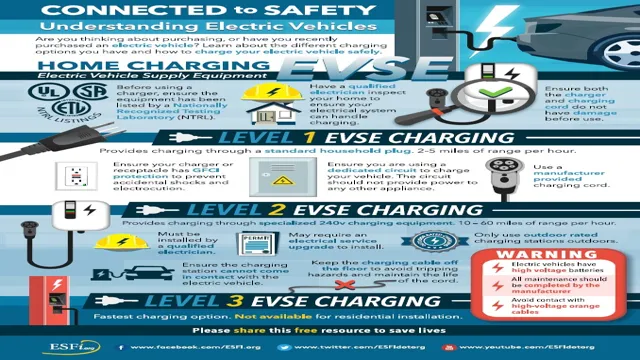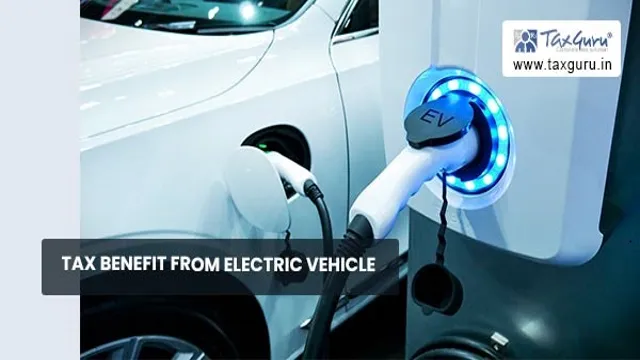Drive Towards Savings: Discover the Tax Benefits of Company Electric Vehicles
Electric company cars have become increasingly popular in recent years, thanks to their ability to not only be environmentally-friendly but also cost-effective. These vehicles offer several benefits, one of which is the potential to save on taxes. As a result, many companies are looking to maximize electric company car tax benefits.
But how can you do this? In this blog, we will explore the various tax incentives available for electric company cars and how you can take advantage of them. Whether you are a business owner or an employee, understanding the tax benefits of electric company cars can help you make informed decisions when it comes to purchasing and using these vehicles. So let’s dive in and explore the world of electric company car tax benefits!
Overview of Electric Company Car Tax Benefits
Electric company car tax benefitss are one of the biggest advantages of switching to an electric vehicle for business use. The government provides several tax incentives to those who take the eco-friendly step of driving an electric vehicle as part of their company’s fleet. The primary tax benefit is the ability to claim a 100% first-year allowance against the purchase price of the vehicle.
This means that companies can deduct the full cost of purchasing the electric car from their taxable profits in the first year. Additionally, electric company cars are exempt from paying vehicle excise duty, or road tax. Electric vehicles are also eligible for lower rates of company car tax than traditional petrol or diesel vehicles.
Overall, these tax benefits make it much more affordable and environmentally-friendly for companies to invest in a fleet of electric vehicles.
Explanation of tax benefits for electric company cars
When it comes to choosing a company car, electric vehicles can offer significant tax benefits. For example, electric cars attract the lowest Benefit in Kind (BIK) tax rate, making them an excellent choice for company car drivers looking to save money on their tax bill. Additionally, electric company cars are exempt from Vehicle Excise Duty (VED) and the London Congestion Charge, saving drivers even more money.
Employers that provide electric vehicles and charging points for employees can also benefit from tax breaks such as exemption from National Insurance contributions. By switching to an electric company car, drivers and employers can save money while also taking a step towards a more sustainable future. So, why not consider an electric vehicle for your next company car?

Comparison of tax benefits for electric and gas company cars
Electric company cars offer several tax benefits that make them an appealing option for businesses. Firstly, the cost of electricity used to charge the car is tax-deductible. Secondly, businesses can claim a 100% first-year allowance on the cost of the car.
This means that companies can deduct the entire cost of the car from their taxable profits in the first year. Additionally, electric company cars have lower CO2 emissions, which enable businesses to benefit from lower road tax and reduced National Insurance Contributions. These tax incentives not only make electric cars more affordable but also promote environmentally friendly practices that support the company’s sustainability goals.
Overall, electric company cars offer significant tax benefits compared to gas company cars, making them the smarter choice for businesses looking to reduce their carbon footprint while also boosting their bottom line.
Federal Tax Benefits for Electric Company Cars
If you’re considering an electric company car for yourself or your employees, you may be wondering about the federal tax benefits available. The good news is that there are several tax incentives for electric company car buyers. These include a federal tax credit of up to $7,500 for qualifying vehicles, as well as the ability to deduct up to 100% of the cost of the vehicle in the first year of ownership.
Additionally, you can deduct the cost of charging and maintaining the car, as well as any interest paid on a loan used to buy the vehicle. However, it’s important to note that these tax benefits are subject to change and may vary depending on state and local laws. So, be sure to consult with a tax professional to determine your eligibility and ensure you’re taking full advantage of all available incentives.
Overall, investing in an electric company car can not only benefit your bottom line but also help reduce your carbon footprint.
Overview of federal tax credits
Federal tax credits are a great incentive for companies that want to go green by investing in electric company cars. There are several tax benefits that can save businesses money and encourage them to make the switch to electric cars. One federal tax credit is the Electric Vehicle Tax Credit, which provides a credit of up to $7,500 for purchasing an electric car.
This tax credit is available until a particular manufacturer sells 200,000 electric cars, so it’s essential to check if the credit is still available before purchasing a vehicle. The Work Opportunity Tax Credit is another incentive for businesses to purchase electric company cars. This tax credit provides up to $2,400 per employee annually who uses an electric car for work-related purposes.
These credits help companies save money on their tax bills while also contributing to the reduction of carbon emissions and promoting environmental sustainability. Investing in electric company cars not only helps businesses save money but also benefits the environment in the long run.
Details on Section 179 deduction for electric vehicles
The Section 179 deduction is a tax benefit that allows you to write off the cost of certain assets in the year they were acquired. It’s especially helpful for businesses that need to purchase equipment or vehicles to run their operations. If you’re considering buying an electric company car, you may be eligible for this tax benefit.
Under Section 179, eligible vehicles can be fully depreciated in the first year, up to a limit of $18,100. This means that if you purchase a qualifying electric vehicle for your business, you can deduct the full purchase price from your taxable income. This can result in significant tax savings and make electric vehicles a more affordable option for your company.
Keep in mind that there are specific requirements that must be met to qualify for the Section 179 deduction. For example, the vehicle must be used at least 50% of the time for business purposes. Additionally, the vehicle must have a gross vehicle weight rating (GVWR) of less than 14,000 pounds.
If you meet these requirements, the Section 179 deduction can be a great incentive to invest in an electric company car.
How to claim federal tax benefits for electric company cars
As more and more businesses transition to the use of electric cars, taking advantage of tax incentives for making the switch is becoming increasingly important. Lucky for us, the government offers several tax benefits for incorporating electric vehicles into your company’s operations. One such incentive is the Electric Vehicle Tax Credit, which offers up to $7,500 in tax credits for qualifying electric vehicles.
Additionally, electric cars are eligible for a faster-depreciation rate than traditional vehicles, meaning your company can see significant tax savings. To claim these benefits, make sure to keep detailed records of how your electric cars are being used for business purposes, as well as the expenses associated with their maintenance and charging. These tax benefits not only help reduce your company’s expenses but also contribute to a more sustainable future.
State Tax Benefits for Electric Company Cars
If you’re considering an electric company car, you may be happy to know that there are tax benefits available in some states. In certain areas, you can receive tax credits, rebates or deductions for purchasing or leasing an electric vehicle. This could make the cost of buying or leasing an electric car significantly cheaper than a traditional gas-powered vehicle.
Additionally, in some states, electric cars are exempt from certain taxes, such as sales tax, which can lead to additional cost savings. Keep in mind that tax benefits and incentives vary by state, so it’s important to research what’s available in your area. If you’re interested in helping the environment while also taking advantage of tax benefits, an electric company car may be a great option for you.
Overview of state tax incentives for electric vehicles
State tax incentives for electric vehicles can be a significant benefit for businesses that rely on company cars. In many states, using electric vehicles for business purposes can result in substantial tax credits, deductions, or exemptions. For example, in California, businesses can receive a tax credit of up to $2,500 per electric vehicle leased or purchased for commercial use.
Additionally, many states allow for a partial or total exemption of sales tax on electric vehicle purchases. These incentives can significantly reduce the cost of operating electric company cars, which can be especially helpful for small businesses or those looking to transition to more sustainable transportation options. It’s essential to research the specific incentives available in your state to take full advantage of the financial benefits of electric vehicles for your business.
With these incentives in mind, companies can save money and contribute to a cleaner environment.
Examples of state tax benefits for electric company cars
Electric vehicles have become increasingly popular in recent years, and many states have responded by offering tax benefits to companies who use them as company cars. For example, California offers a rebate of up to $2,500 for electric company cars, while Colorado offers a tax credit of up to $5,000. Massachusetts offers both a rebate and a tax credit to companies who use electric vehicles, with a maximum rebate of $7,500 and a maximum tax credit of $25,000.
These tax benefits can make a significant difference for companies in terms of their bottom line, and can also encourage more widespread adoption of electric vehicles.
Conclusion and Next Steps
To sum it up, electric company car tax benefits are a shining example of how our society can incentivize sustainable practices while still keeping the economy afloat. Think of it like a two-for-one deal at your favorite store, but instead of a discounted shirt, you get a cleaner planet and a little extra money in your pocket. So, if you’re in the market for a new company car, why not go electric? Not only will you be doing your part to help combat climate change, but you’ll also be reaping the financial rewards of some pretty nifty tax breaks.
It’s a win-win situation, and who doesn’t love a good win-win?
FAQs
What are the tax benefits of buying an electric company car?
Electric company cars are eligible for lower tax rates, reduced National Insurance contributions, and possible exemptions from congestion charges and road tax.
Can electric company cars help businesses save money in the long run?
Yes, electric company cars have lower running costs than traditional petrol or diesel vehicles, resulting in significant savings on fuel, maintenance, and repair expenses.
How can businesses encourage employees to switch to electric company cars?
Offering incentives such as free charging at work, access to priority parking, or financial rewards can motivate employees to choose electric company cars over other options.
How does driving an electric company car contribute to reducing carbon emissions?
Electric company cars have no emissions when being driven, reducing their carbon footprint and promoting a more sustainable transportation system.





